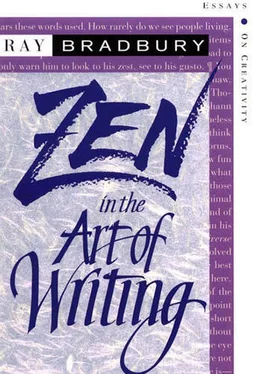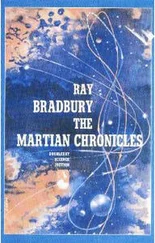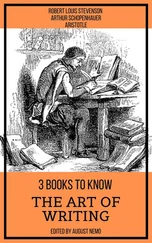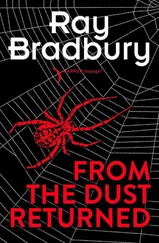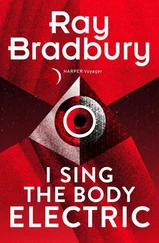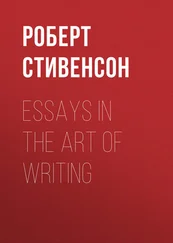Ray Bradbury - Zen in the Art of Writing
Здесь есть возможность читать онлайн «Ray Bradbury - Zen in the Art of Writing» весь текст электронной книги совершенно бесплатно (целиком полную версию без сокращений). В некоторых случаях можно слушать аудио, скачать через торрент в формате fb2 и присутствует краткое содержание. Жанр: Биографии и Мемуары, на английском языке. Описание произведения, (предисловие) а так же отзывы посетителей доступны на портале библиотеки ЛибКат.
- Название:Zen in the Art of Writing
- Автор:
- Жанр:
- Год:неизвестен
- ISBN:нет данных
- Рейтинг книги:4 / 5. Голосов: 1
-
Избранное:Добавить в избранное
- Отзывы:
-
Ваша оценка:
- 80
- 1
- 2
- 3
- 4
- 5
Zen in the Art of Writing: краткое содержание, описание и аннотация
Предлагаем к чтению аннотацию, описание, краткое содержание или предисловие (зависит от того, что написал сам автор книги «Zen in the Art of Writing»). Если вы не нашли необходимую информацию о книге — напишите в комментариях, мы постараемся отыскать её.
Zen in the Art of Writing — читать онлайн бесплатно полную книгу (весь текст) целиком
Ниже представлен текст книги, разбитый по страницам. Система сохранения места последней прочитанной страницы, позволяет с удобством читать онлайн бесплатно книгу «Zen in the Art of Writing», без необходимости каждый раз заново искать на чём Вы остановились. Поставьте закладку, и сможете в любой момент перейти на страницу, на которой закончили чтение.
Интервал:
Закладка:
Let's say that each of us has fed himself on life, first, and later, on books and magazines. The difference is that one set of events happened to us, and the other was forced feeding.
If we are going to diet our subconscious, how prepare the menu?
Well, we might start our list like this:
Read poetry every day of your life. Poetry is good because it flexes muscles you don't use often enough. Poetry expands the senses and keeps them in prime condition. It keeps you aware of your nose, your eye, your ear, your tongue, your hand. And, above all, poetry is compacted metaphor or simile. Such metaphors, like Japanese paper flowers, may expand outward into gigantic shapes. Ideas lie everywhere through the poetry books, yet how rarely have I heard short story teachers recommending them for browsing.
My story, "The Shoreline at Sunset," is a direct result of reading Robert Hillyer's lovely poem about finding a mermaid near Plymouth Rock. My story, "There Will Come Soft Rains," is based on the poem of that title by Sara Teasdale, and the body of the story encompasses the theme of her poem. From Byron's, "And the Moon Be Still as Bright," came a chapter for my novel The Martian Chronicles , which speaks for a dead race of Martians who will no longer prowl empty seas late at night. In these cases, and dozens of others, I have had a metaphor jump at me, give me a spin, and run me off to do a story.
What poetry? Any poetry that makes your hair stand up along your arms. Don't force yourself too hard. Take it easy. Over the years you may catch up to, move even with, and pass T. S. Eliot on your way to other pastures. You say you don't understand Dylan Thomas? Yes, but your ganglion does, and your secret wits, and all your unborn children. Read him, as you can read a horse with your eyes, set free and charging over an endless green meadow on a windy day.
What else fits in our diet?
Books of essays. Here again, pick and choose, amble along the centuries. You'll have much to pick over from the days before the essay became less popular. You can never tell when you might want to know the finer points of being a pedestrian, keeping bees, carving headstones, or rolling hoops. Here is where you play the dilettante, and where it pays to do so. You are, in effect, dropping stones down a well. Every time you hear an echo from your Subconscious, you know yourself a little better. A small echo may start an idea. A big echo may result in a story.
In your reading, find books to improve your color sense, your sense of shape and size in the world. Why not learn about the senses of smell and hearing? Your characters must sometimes use their noses and ears or they may miss half the smells and sounds of the city, and all of the sounds of the wilderness still loose in the trees and on the lawns of the city.
Why all this insistence on the senses? Because in order to convince your reader that he is there , you must assault each of his senses, in turn, with color, sound, taste, and texture. If your reader feels the sun on his flesh, the wind fluttering his shirt sleeves, half your fight is won. The most improbable tales can be made believable, if your reader, through his senses, feels certain that he stands at the middle of events. He cannot refuse, then, to participate. The logic of events always gives way to the logic of the senses. Unless, of course, you do something really unforgivable to wrench the reader out of context, such as having the American Revolution won with machine guns, or introducing dinosaurs and cave men into the same scene (they lived millions of years apart). Even with this last, a well-described, technically perfect Time Machine can suspend disbelief again.
Poetry, essays. What about short stories, novels? Of course. Read those authors who write the way you hope to write, those who think the way you would like to think. But also read those who do not think as you think or write as you want to write, and so be stimulated in directions you might not take for many years. Here again, don't let the snobbery of others prevent you from reading Kipling, say, while no one else is reading him.
Ours is a culture and a time immensely rich in trash as it is in treasures. Sometimes it is a little hard to tell the trash from the treasure, so we hold back, afraid to declare ourselves. But since we are out to give ourselves texture, to collect truths on many levels, and in many ways, to test ourselves against life, and the truths of others, offered us in comic strips, TV shows, books, magazines, newspapers, plays, and films, we should not fear to be seen in strange companies. I have always felt on good terms with Al Capp's "L'il Abner." I think there is much to be learned about child psychology from "Peanuts." A whole world of romantic adventure has existed, beautifully drawn by Hal Foster in his "Prince Valiant." As a boy I collected and was perhaps influenced in my later books by the wonderful middle-class American daily strip "Out Our Way" by J. C. Williams. I am as much Charlie Chaplin in Modern Times in 1935 as I am Aldous Huxley's reader-friend in 1961. I am not one thing. I am many things that America has been in my time. I had enough sense to keep moving, learning, growing. And I have never reviled or turned my back on the things I grew out of. I learned from Tom Swift, and I learned from George Orwell. I delighted in Edgar Rice Burroughs's Tarzan (and still respect that old delight and will not be brainwashed from it) as today I delight in C. S. Lewis's Screwtape Letters . I have known Bertrand Russell and I have known Tom Mix, and my Muse has grown out of the mulch of good, bad, and indifferent. I am such a creature as can remember with love not only Michelangelo's Vatican ceilings but the longgone sounds of the radio show, "Vic and Sade."
What is the pattern that holds all this together? If I have fed my Muse on equal parts of trash and treasure, how have I come out at the farther end of life with what some people take to be acceptable stories?
I believe one thing holds it all together. Everything I've ever done was done with excitement, because I wanted to do it, because I loved doing it. The greatest man in the world for me, one day, was Lon Chaney, was Orson Welles in Citizen Kane , was Laurence Olivier in Richard III . The men change, but one thing remains always the same: the fever, the ardor, the delight. Because I wanted to do, I did. Where I wanted to feed, I fed. I remember wandering, stunned, off a stage in my home town, holding a live rabbit given to me by Blackstone the Magician in the greatest performance ever! I remember wandering, stunned, in the papier-mache streets of the Century of Progress Exhibition in Chicago in 1933; in the halls of the Venetian doges in Italy in 1954. The quality of each event was immensely different, but my ability to drink it in, the same.
This does not mean to say that one's reaction to everything at a given time should be similar. First off, it cannot be. At ten, Jules Verne is accepted, Huxley rejected. At eighteen, Thomas Wolfe accepted, and Buck Rogers left behind. At thirty, Melville discovered, and Thomas Wolfe lost.
The constant remains: the search, the finding, the admiration, the love, the honest response to materials at hand, no matter how shabby they one day seem, when looked back on. I sent away for a statue of an African gorilla made of the cheapest ceramics when I was ten, said statue a reward for enclosing the wrapper from a package of Fould's Macaroni. The gorilla, arriving by mail, got a reception as large as that given the Boy David at his first unveiling.
The Feeding of the Muse then, which we have spent most of our time on here, seems to me to be the continual running after loves, the checking of these loves against one's present and future needs, the moving on from simple textures to more complex ones, from naive ones to more informed ones, from nonintellectual to intellectual ones. Nothing is ever lost. If you have moved over vast territories and dared to love silly things, you will have learned even from the most primitive items collected and put aside in your life. From an ever-roaming curiosity in all the arts, from bad radio to good theatre, from nursery rhyme to symphony, from jungle compound to Kafka's Castle , there is basic excellence to be winnowed out, truths found, kept, savored, and used on some later day. To be a child of one's time is to do all these things.
Читать дальшеИнтервал:
Закладка:
Похожие книги на «Zen in the Art of Writing»
Представляем Вашему вниманию похожие книги на «Zen in the Art of Writing» списком для выбора. Мы отобрали схожую по названию и смыслу литературу в надежде предоставить читателям больше вариантов отыскать новые, интересные, ещё непрочитанные произведения.
Обсуждение, отзывы о книге «Zen in the Art of Writing» и просто собственные мнения читателей. Оставьте ваши комментарии, напишите, что Вы думаете о произведении, его смысле или главных героях. Укажите что конкретно понравилось, а что нет, и почему Вы так считаете.
